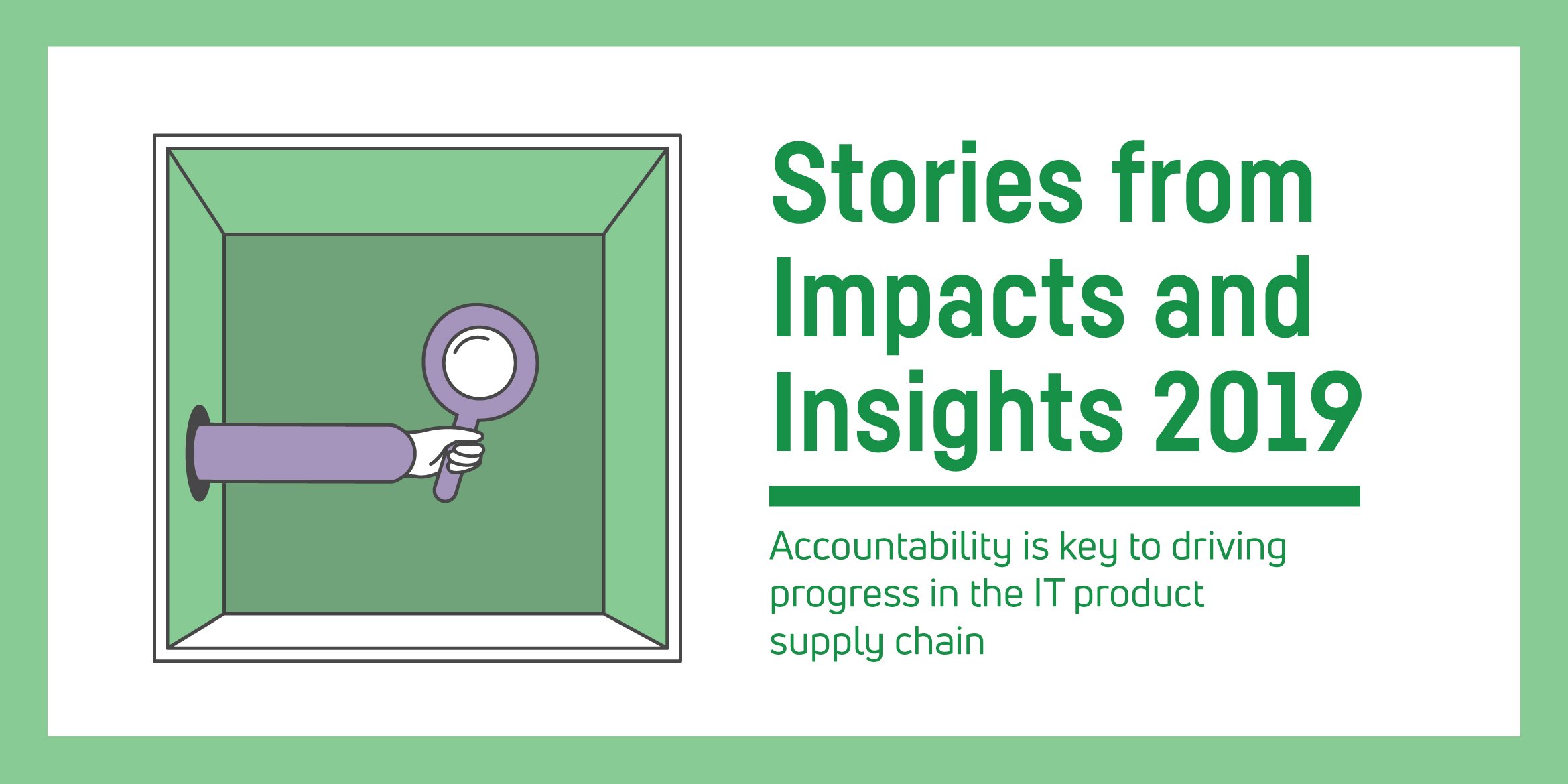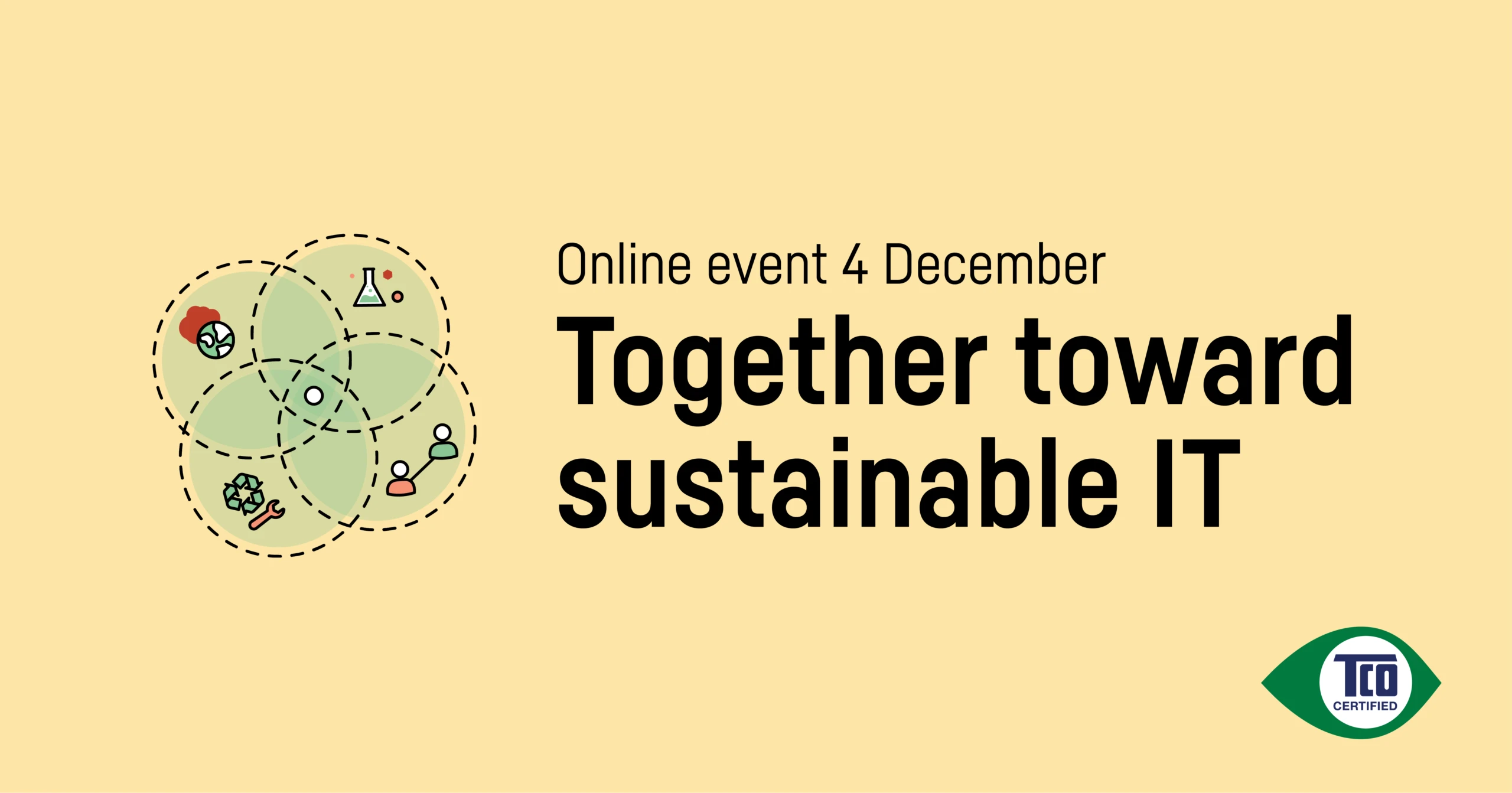Supply chain responsibility is a continuing challenge in the IT industry, and a cornerstone in TCO Certified. TCO Development’s CEO Sören Enholm explains why continual monitoring and observations by independent parties are keys to driving more responsible practices.
This text is an excerpt from the report Impacts and Insights 2019.

Sören Enholm, TCO Development
Our goal with TCO Certified is to provide a systematic approach to driving safer, more responsible practices, from raw materials extraction through to final assembly. The IT industry is increasingly engaged in and aware of sustainability issues. Brand owners often audit their manufacturing sites against a code of conduct, but one challenge is that non-conformities are not always corrected.
With this in mind, we’ve implemented a systematic way of working with corrective actions and follow-up to drive faster progress. We also introduced criteria for responsible sourcing of conflict minerals and designed a whole new way of managing hazardous substances, where flame retardants must be assessed and approved as safer alternatives before they are used in certified products. In all three areas, we can conclude that accountability and transparency are key to faster, more lasting change.
Looking back at the last three years, we can clearly see that brand owners using TCO Certified have become more committed to sustainability issues and are more actively driving positive change, taking steps that directly benefit workers in all phases of the supply chain. At final assembly factories, there are fewer non-conformities, especially at shared supply sites. The paradigm around hazardous substances has changed, accelerating the shift to greater transparency and safer substitutions.
Reaching into the IT product supply chain to trace a product’s origin or monitor the conditions under which it’s made demands unique access, resources, and experience. For most product purchasers, this simply isn’t possible. With TCO Certified, verification and follow up are included. We hold the brand owner accountable, both at the product level and in the supply chain — also for the steps in the process that they don’t own themselves. They have oversight and control, making them best positioned to affect working environments and conditions.
“Brand owners using TCO Certified have become more committed to sustainability issues”
At first, our push for greater transparency was a somewhat confronting challenge and required a new mindset from industry. We met with some resistance from chemical companies, as information on ingredients and hazards was typically treated as confidential. What caused the shift with major chemical suppliers was when their clients, the IT brand owners, used the criteria in TCO Certified as leverage to bring about a new level of transparency around the chemicals used in certified products. Industry began to see the benefits of a shared list that helps them make more informed judgements on chemical use. The transparent approach lowers the brand owner’s risk of expensive product recalls or costly transitions to another chemical supplier, should a substance become restricted by legislation.
When an IT product brand owner applies for certification, they’re making a long term commitment to working toward a sustainable IT product life cycle. This effort requires continuous innovation and improvement over time on the part of brand owners and suppliers alike. Our mission is for TCO Certified to provide the systematic roadmap for getting there. So whether you use TCO Certified as an IT brand or as a buyer, making more responsible IT product choices lies with all of us.
Are you ready to make an impact with sustainable procurement? This is how you do it.
This is an extract from the report Impacts and Insights 2019. The report measures the sustainability progress among brand owners with IT products certified according to TCO Certified, and presents keys to solving the most pressing sustainability challenges in the IT product supply chain.




